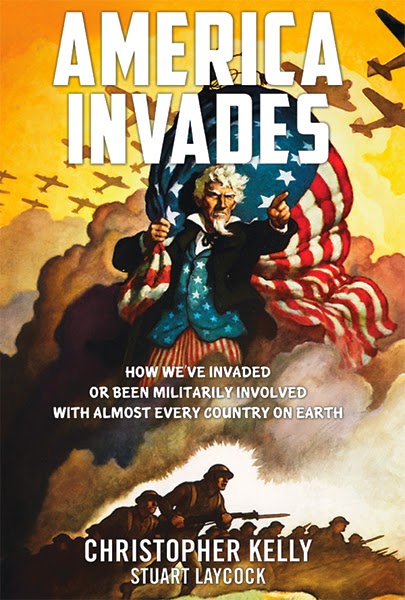 |
| Jefferson in London, Spring 1786 |
We have all heard about Jefferson in Paris. What about Jefferson in London?
On March 9th, 1786 Thomas Jefferson crossed the channel from Calais to Dover. He spent the next 48 days in England, visiting London for the first and only time in his life. He was already, of course, the Principal author of the Declaration of Independence that had blasted George III. At that time, he had yet to serve as Washington's Secretary of State or our nation's third President.
How did this American Revolutionary spend his time in England?
Ostensibly, he was in England on business. John Adams, the first Ambassador to the court of St. James, had written him a letter asking him to visit London to help negotiate a treaty with the Portugese that would protect American ships from seizure by Barbary pirates. "The Adams-Jefferson diplomatic efforts were unsuccessful. Although they negotiated and signed a treaty with Portugal, the Portugese minister, Chevalier de Pinto, had not received authority to sign, and when he submitted the treaty for approval it was rejected."
He went to the court of St. James where he and Adams were both snubbed by his Majesty, George III who was still smarting from the wounds inflicted by the American Revolution. Herein lies part of the explanation for Jefferson's subsequent Anglophobia...
"On the morning of March 17th, Adams took Jefferson to the court of St. James's Palace and presented him to George III and Queen Charlotte. Ten years earlier the King had read Jefferson's scorching denunciation of him in the Declaration of Independence, and he had neither forgotten nor forgiven. Jefferson poignantly describes their reception: 'On my presentation...to the King and Queen at their levees, it was impossible for anything to be more ungracious than their notice of Mr. Adams and myself. I saw at once that the ulcerations in the narrow mind of that mulish being left nothing to be expected on the subject of my attendance.' Adams remembered the King turning his back on them. 'A hint of which, of course, was not lost upon the circle of his subjects in attendance.' And, indeed, it was not, for though Jefferson was entertained at dinners by a few Englishmen who were American sympathisers, he was ignored during the remainder of his stay by members of the British ministry."
"On March 18th he attended the opera at the King's theatre in Hay Market and saw Antonio Salieri's comic opera La Scuola de Gelosi."
On March 19th he visits the castle and gardens at Windsor.
On April 2 Jefferson takes a two day landscape garden tour of Surrey and Middlesex. He stops by to see Hampton court, the former residence of Henry VIII. He took an extended garden trip through the English countryside with John Adams. No doubt gathering ideas for later use at Monticello (http://www.monticello.org/).
Over the course of his long life, Thomas Jefferson pursued his happiness to the bottom of many a wine glass. "They lodged in Buckingham and paid almost twice as much for their beer and wine as they did for their dinner of veal chops and mutton steaks."
He and Adams indulged in some battlefield tourism. Together they saw the battlefields of Edgehill and Worcester from the English Civil war. Adams found those sites "curious and interesting to us, as scenes where free men had fought for their rights." At Worcester he became passionately indignant and asked, "And do Englishmen so soon forget the ground where liberty was fought for? Tell your neighbours and your children that this is holy ground; much holier than that on which the churches stand. All England should come and pilgrimage to this hill once a year."
They visited several of the colleges at Oxford, perhaps gaining some ideas for his later development of the University of Virginia (UVA). He enjoyed touring Kew gardens. He visited many London bookshops.
Together with Abigail and John Adams they visited the Tower of London.
 |
| Ranleagh, London |
main pleasure haunts (http://www.londononline.co.uk/history/c18/8/) . Here Kings, Ambassadors, statesmen, literati, nobility, ladies of fashion and prostitutes mingled at masquerades, banquets, dances, parties and other fetes. This was sharp departure in style from his usual evenings at the theatre, opera, concerts and dining with the Adams family and their friends".
On April 20th he attends a performance of Shakespeare's The Merchant of Venice at the Royal Theatre at Drury Lane. He also visited Stratford on Avon to see the birthplace of the bard.
He tours the British museum with John and Abigail Adams. He went to Greenwich and saw the Royal Observatory and Wren's hospital.
On April 26th he makes the mandatory stop at an English tailor where he purchases "a waistcoat Silk Strip'd" and "A pr. Nankeen riding breeches." He patronises the "nation of shopkeepers."
In sum, Thomas Jefferson came to London in 1786 to try to deal with an early form of Islamic terrorism (Barbary pirates) and ended up setting the mold for all future American tourists in London.
Source all quotes: Passions: The Wines and Travels of Thomas Jefferson, James M. Gabler, 1995.
http:/www.amzn.com/0961352531
You can now purchase Commander Kelly's first book, America Invades here...www.americainvades.com or on Amazon...www.amzn.com/1940598427

No comments:
Post a Comment